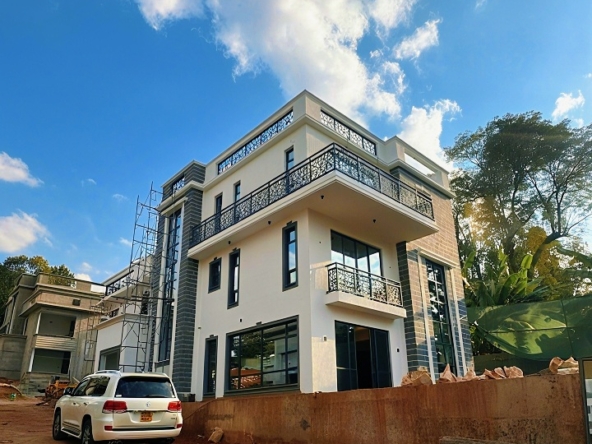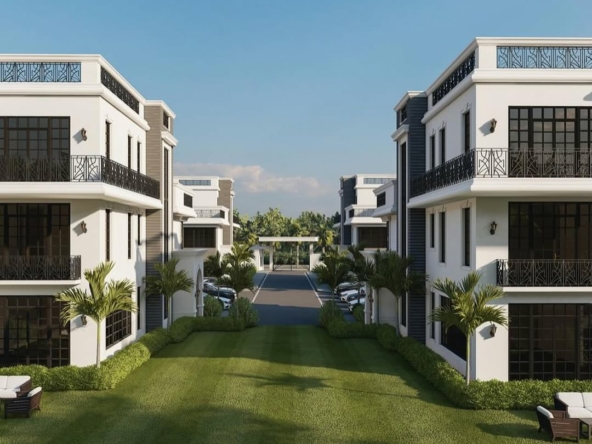In the era of the COVID-19 Pandemic, like most business sectors, real estate development in the country has also experienced a slump. 2019 saw tremendous growth in real estate, which set the precedent that 2020 would follow through with more profits. But you know what they say, we make plans, God Laughs.
According to the 2020 economic survey by the Kenya National Bureau of Statistics, the real estate sector recorded a 1.2% increase in growth rate between 2018 and 2019. This was an improvement compared to the sluggish growth real estate experienced between 2017 and 2018. In the first quarter of 2020, the retail sector experienced a 0.1% drop in retail yields, from 7.8% in the last quartile of 2019. 2021 has proven to experience the same challenges due to the Pandemic.
How COVID Affected Real Estate Development
During the last 18 months, since the report of the first COVID case in the country, the real estate sector in the country experienced a significant hit. More so in 2020 as lockdown measures were initiated to curb the spread of the virus. This created economic distress on business owners all over the country, with real estate developers experiencing more pressure as things appeared to be immobile.
Real estate and property firms located in the areas affected mainly by the lockdown, such as Mombasa, had to drop their house and land prices due to the Pandemic as a short-term survival safety net. The country continues to experience a slow growth rate in the sector even as the lockdown measures have been eased.
Travel restrictions severely impacted the tourism sector. This saw hotels suspend their operations for months, which affected commercial properties in the real estate sector. Travel restrictions were put in place for months, and borders were sealed until early this year.
Lockdown made it hard for Kenyan real estate companies to access the labor force, which disrupted supply chains, making development periods longer than anticipated. With all offices closed, the process of approvals for developers was delayed. Many real estate developers in the country were forced to comply with this pandemic crisis.
The Pandemic has resulted in a global recession which caused developers to reserve their money as the market liquidity seemed very likely to decline. Due to the general risk aversion amid the COVID pandemic, the funding coming into the real estate sector has significantly reduced.
As the virus spread around the country, web traffic to real estate developers’ sites continued to drop. Developers had to halt ongoing projects due to financial strain and the difficulty of securing material required to complete projects. Those still willing to continue constructing still experienced cash flow issues because most buyers were holding back installment payments. This resulted in a decline in property sales as well.
Banks were also reluctant to grant loans due to the rising fear of a recession. This resulted in a decline in mortgage uptake by most home buyers. Landlords with rentals were also being very skeptical not to lose their tenants. Several landlords were forced to either renegotiate payment terms or lease property for a lesser amount.
The financial constraints due to COVID restrictions saw many tenants vacate their properties. There has been an increasing number of reports of people relocating to smaller houses or sharing spaces with friends and family to cut costs. This has resulted in a significant increase in vacant homes in the real estate market.
With the government urging employees to work from home in 2020, 75% of commercial office spaces remained vacant. Most private companies vacated their office spaces to work from home and cut costs.
Real Estate Development Post Lockdown
In 2021, due to the country’s economic dip, phase reopening after months of lockdown started to be initiated. This was to allow the progress of businesses in and out of different counties. By May, the lockdown had been completely lifted. Curfew continued to apply, until October when the curfew was also lifted.
Considering that the Pandemic doesn’t seem to be ending soon, the end of lockdown and curfew serves as a blessing to the real estate sector as the market now has a chance of slowly picking up pace. Developers are willing to negotiate further to maintain a healthy cash flow to weather the repercussions of the Pandemic. As normalcy returns, the market will pick up again.
Real estate investors in Kenya are also in a better position now than in 2020 to obtain healthier capital gains on properties because they will soon be able to sell at better prices after things get back to normal.
With the CBK lending rate reduction, banks have lowered the interest rates on financial loans and mortgages, which will favor investors. Real estate tends to create a hedge against inflation and currency fluctuations as a fixed asset, unlike financial market investments. It also eases succession and retirement planning since it guarantees stable income to investors with low exposure to losses.
As we are yet to know the actual damage the COVID-19 Pandemic has inflicted upon real estate developers, we continue to preserve the value of homeownership here at Numa Real Estate. We have answers to your real estate questions and property solutions for anyone looking to buy new properties or sell an existing one.
We pride ourselves in offering sustainable real estate solutions despite the Pandemic. We have properties all over Nairobi, including Kileleshwa, Lavington, and Kilimani. We have rentals and properties for sale at affordable prices. Our properties are encompassed with a unique combination of style, class, and sophistication.
The impact of the Pandemic has been significant, but we continue to have faith that the crisis will be over soon. While the market continues to experience a slow recovery due to investors’ changing priorities and depressed income levels, Numa Real Estate has your financial needs in mind. Please browse through our affordable properties here.https://www.numarealestate.co.ke


























